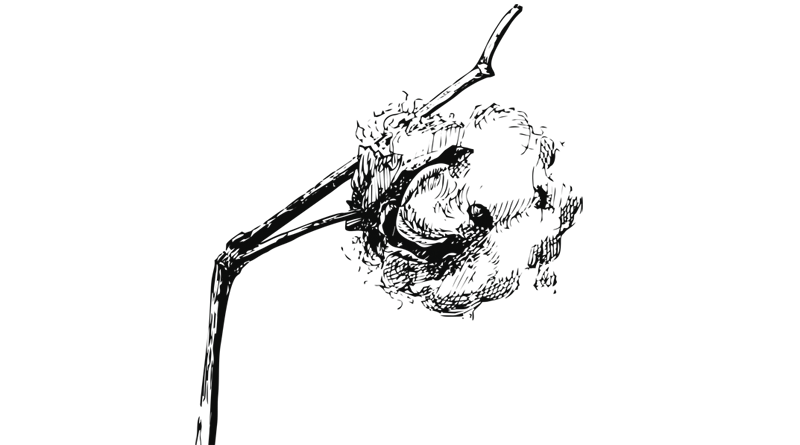

For years, nurse Shokhidakhon Khasanova was signed out of hospital every autumn to spend weeks labouring in Uzbekistan’s cotton fields along with over two million others.
“One year I was pregnant, but it didn’t matter. They still told me I had to go,” said Khasanova, a 46-year-old from Almalyk, a town 65 kilometres (40 miles) from the capital Tashkent.
Women in particular were targeted in the annual recruitment drive, which Khasanova participated in for 15 years as either a student or qualified nurse.
An ex-Soviet nation of 33 million in Central Asia, Uzbekistan is the world’s sixth-largest producer of cotton.
Since the Soviet era, production targets have led to forced labour and taken a heavy environmental toll. Independent Uzbekistan’s first leader Islam Karimov, a former Communist party boss who died in 2016, never acknowledged either problem.
While child labour was notably wound down near the end of his 27-year reign under pressure from an international boycott, state employees were still called up every year to satisfy cotton quotas.
But after reform-touting Shavkat Mirziyoyev took Karimov’s place, “they stopped calling us to the fields,” Khasanova told AFP.
Mirziyoyev, who oversaw successive cotton harvests as a prime minister and regional governor under Karimov, cuts an unlikely labour rights champion.
He has, however, denounced the use of forced labour and the recruitment of children to gather the harvest.
- Old industry, new vision -
Mirziyoyev has also set out plans to shift the sector away from state management by 2023, echoing other ambitious top-down economic reforms underway.
Hundreds of Western apparel and textile firms are part of a decade-long boycott of cotton from the country over the forced and child labour, following a campaign by non-profits and activists.
Many of those organisations remain sceptical about the authorities’ commitment to reform.
But the UN’s International Labour Organization sees signs for optimism. It recorded both a 50 percent fall in forced labour during last year’s harvest, and increased wages for pickers.
The ILO also points to increased punishments for labour rights violations and the promised eradication of state quotas and purchases by 2023.
“We have seen a significant change in the conversations we are having and the approach of the government,” the ILO’s chief technical officer in Uzbekistan, Jonas Astrup, told AFP in Tashkent.
“Nobody is trying to hide anything, nobody is trying to make it difficult for us to do our monitoring.”
About 170,000 people were forced to take part in the harvest in 2018, according to the ILO -- just under seven percent of the total harvest labour of 2.5 million.
Uzbekistan’s First Deputy Minister of Labour Erkin Mukhitdinov said increased fines and legislation that will criminalise forced labour go hand-in-hand with plans to make cotton a private-sector affair.
“Investors are looking for quality and productivity. When someone is made to work against their will they are not productive,” said Mukhitdinov.
AFP journalists interviewed several pickers during a recent spontaneous visit to a cotton field in the village of Boyovul about 70 kilometres (40 miles) from the capital.
None of them criticised harvests under the hardline Karimov, who is still feted as a fatherly statesman, including by Mirziyoyev. Nor did they say they were forced to work in the past.
But they were quick to acknowledge the impact increased wages -- up 15 percent against last year -- and a tax exemption had on their lives.
“If before we picked to eat, now we can save for something,” said 30-year-old Lobar Toshpulatova, as she wrenched the last soft white bolls of the season from a cotton shrub and headed to weigh in.
Toshpulatova said she had earned the equivalent of $220 in the first four weeks of the harvest, recording a personal best of 130 kilogrammes picked in a 10-hour shift in September.
She planned to use the money to purchase her family’s first washing machine.
‘Why not now?’
In March this year, the US government removed Uzbek cotton from a list of goods prohibited over child labour concerns, noting that the phenomenon had been “significantly reduced to isolated incidents”.
Last year, Washington imposed a ban on cotton from Uzbekistan’s fellow ex-Soviet neighbour Turkmenistan, which has also faced criticism over forced and child labour in its harvest.
But the fall in forced labour reported by the ILO in Uzbekistan has so far failed to budge more than 300 signatories of the “Uzbek Cotton Pledge”, which includes retail giants such as Walmart and Adidas.
The government’s insistence that the problem is now limited to reactionary officials and farms struggling to meet state targets has not convinced rights groups.
Umida Niyazova, director of the Berlin-based Uzbek-German Forum for Human Rights, which conducts its own monitoring of the Uzbek harvest, said the abolition of state quotas and purchases removed “a key stimulant” for the practice.
But she questions why the government is waiting until 2023 to do away with a rotten system.
“Why not now, when people’s rights are at stake?” — AFP
Oman Observer is now on the WhatsApp channel. Click here



